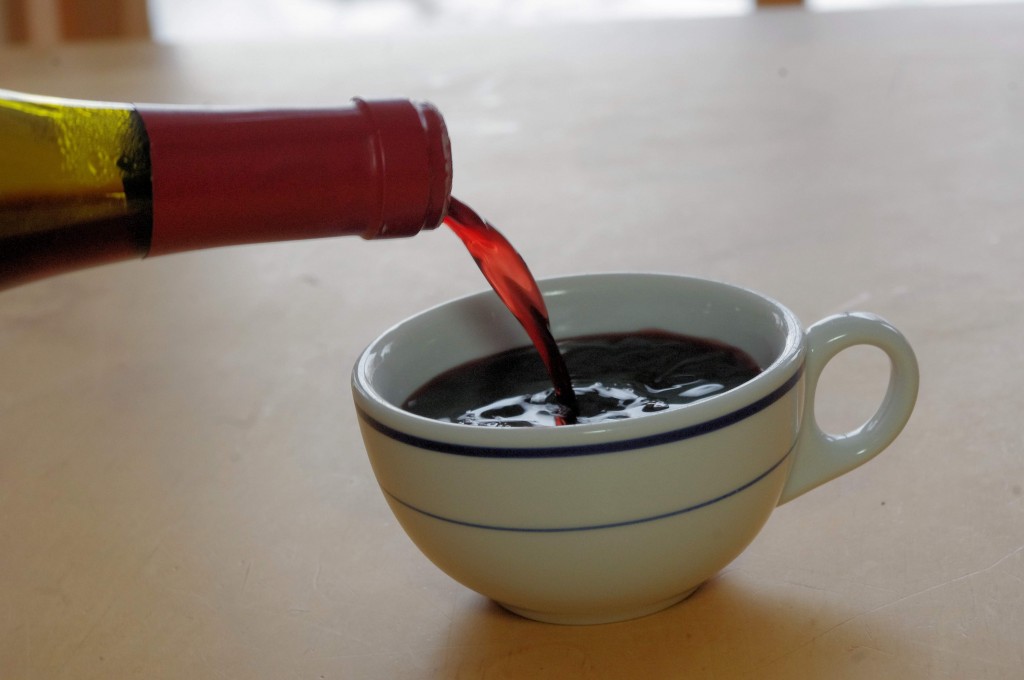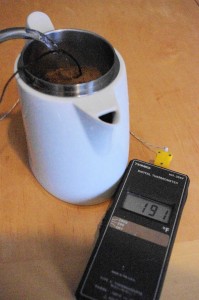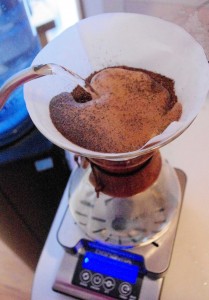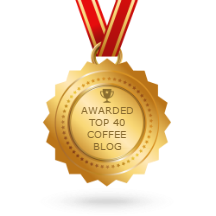
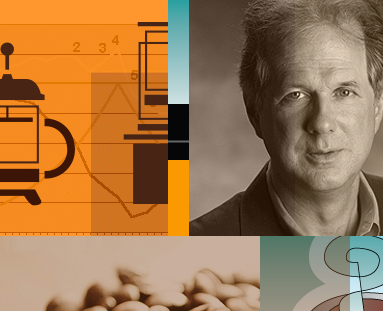
Another Coffee is Wine Article
Let’s go through this article, which appears in the Wine Enthusiast, and see how they did. Here’s the link: http://www.winemag.com/February-2014/The-Wine-Lovers-Guide-to-Coffee/?goback=%2Egde_150968_member_5826407454983876609#%21
“Joe-ography.” Cute. Okay, let’s talk about geography. The writer makes the argument that coffee is like wine and geography affects the beans’ flavor as it does grapes. I basically agree that geography appears to affect coffee. But, of course there’s much more to the story and differences abound. Most of the world’s coffees are from two types of bean (He acknowledges this in paragraph 2). Wine is from lots of different grapes and of course geography affects a chardonnay grape, so that one grown in France tastes different then one grown in California. He says wine can be divided into old world and new world. I can’t see how that applies to coffee in any way. While geography is important to coffee and wine, the paragraph does nothing to convince me that coffee is like wine.
Things You Didn’t Know About Coffee. All of these are ostensibly correct. A few of them would make me see similarities to wine, back to terroir (where it was grown and climate conditions). The rest, things like dark roast (which he recommends at least twice) are not analogous to wine. Can you imagine a why don’t you drink wine article in a coffee magazine pointing out the virtues of heavy oak? That’s more like roast, as it’s among the things the trade does to goose up flavor after the harvest so to speak. I’m sure the coffee folks he relied upon told him to point out that certain coffees feature more acidity, but I think it’s better to say that different coffees feature different acidity acidity and character due to their geography (again) and leave it at that. Obviously he has mixed acidity and acid as the same. They are not the same and titling the point “acid trip” adds confusion.
America’s Seven Best Roasters. If a coffee magazine featured a wine extolling article and claimed there were top seven winemakers, I propose by next morning there’d be one few coffee writer, no doubt buried in an undisclosed winery as a message to trade writers like us never, never to do this again. I happen to have had coffee from every one of these shops and they are all in the top rank but there are dozens of equally good roasters, and while I like to extol the roaster’s role in coffee, to be brutally honest, there is a lot more variance in the quality of even the best roaster. Dare I suggest that the roastmaster’s job is to roast just enough to maximize acidity, but at the expense of so-called development, or balance. I’d argue that wine is inherently more created. Since wine is truly a prepackaged beverage, the choices of variety are expanded, blends are the rule, not the exception. Brewing is done for you, perhaps years before. Coffee brewing, the point of consumption culinary art that you and I, or our neighborhood barista has mastered to extract exactly the right flavor balance from even the best grown, best roasted coffee is never mentioned.
The Wine/Coffee Connection. This is an, if you like this wine, you’ll like this coffee section. Actually here I think the writer succeeds. In most of the examples I think he got it close to how I see it. And, I think it’s analogous. There is a spice in most Sumatras. A Pinot Noir has more lightness like a Central American, although here again, there may be more differences variance between coffees. I’ve had some incredibly big Central Americans as I’ve tried more small plot samples.
I’m sure the coffee business says, “Great they spelled our name right.” I’m not against the idea of promoting coffee to another culinary consumer group with deep pockets and finicky taste buds. But, overall, they missed the boat. Coffee is like wine in its complexity. Beyond that, its geography factor is different, its delivery state to the consumer is different. The roaster’s role is more limited than the vintner’s. The consumer’s role is much greater than the cork-popping wine aficionado’s. Oh, and wine has a giant shelf life where coffee has virtually none. Nonetheless, I applaud the attempt.
Is Coffee Brewing a Science or an Art?
Is brewing a science or an art?
A colleague recently posted this article on Linked-In. http://www.ajcoffeeco.com/blog/coffee-brewing-science-or-art/?goback=%2Egde_43141_member_5796946764351184896#%21
It’s a fairly concise piece that attempts to answer its question, but along the way I find it gets confused. It makes the point that a true professional barista should not need to use a scale and that an accomplished coffee barman should be able to make a decent espresso with no extra equipment. The author then encourages the barista to use more eye contact while making the drink for their customer.
All this may be appropriate advice, but I’m afraid I find it ultimately unhelpful. Rather than disassemble their perhaps well-intentioned article, I’m going to simply put forth my own views on this subject.
The headline’s question is a good one. My answer is brewing is a science to make a cup of coffee – which I consider a work of art. Brewing is chemistry. We are attempting to use water as a solvent, which the heat enhances, which is why we heat the water. From then on it’s time and terms. The longer we have contact between the water and the grounds the more coffee flavor matter we extract. Now, there is an element of art involved – that is the subjective decision of how much is enough. Truthfully, there is no right answer. The fact that different parts of the world have different brewing standards shows us this. But, a good barista, or any of us when we brew, should be aiming to brew it to the tastes of the person who will be drinking it, and the methodology we use should be thought out and repeatable. Hence, it is both art and science.
Items like scales, thermometers, measuring spoons are designed to make the process measurable and repeatable. I recall the bad old days of the 1990s when in the Specialty Coffee Gold Rush, I met many entrepreneurs who were convinced their product was 100% art, and they claimed no matter how you brewed their coffee, it tasted great, far better than so-called commodity coffee. In fact, I felt some of these folks viewed people like me who promoted the importance of brewing as simply geek-types who could take the fun out of anything with our measuring obsession.
I think it’s gotten to the point in history where most people in the coffee industry and many consumers accept the fundamental truth that the brewing process is vital and of equal importance with a well-bred, cared for, properly roasted bean in order to make a good-tasting cup of coffee. The word “decent” is a word I reserve for commodity in both product and experience. I am sure I could guess my way through the brewing process and get a decent cup, just as when cooking I could guess at my stove temperature, time and spices and get “decent” food. But, why would I?
As far as eye contact, I often choose a simpler method to brew coffee when entertaining. Most cafes offer two tiers of brewed coffee: there is bottle-brewed coffee made (hopefully) hourly and stored, then dispensed quickly and at a competitive cost. The extra time and cost applied at the brew bar is to achieve an ultimate, fresh and flavorful cup. The freshness alone should justify the extra effort to someone who’s going to sit and savor that cup. Using tools such as a scale to make it as exact as possible is simply common sense. There’s no hocus pocus about it.
I do not always use a scale under my Chemex, but this is because I’ve brewed with one for twenty years. I know where 750 weighed grams of brew lies on my brewer, but this does not mean I do not measure.
There surely are connoisseur practices that, while possibly enhancements, I separate them from good brewing practices. For instance, the ritual of pouring hot water to wet the filter before brewing is, in my experience, optional. Carefully measuring both water and grounds, whether weighing or using a measuring spoon, is not an option. Grinding using the best appliance affordable just before brewing, is a given, not an option. My wife always rinses her cup with boiling water before I pour her cup. I consider that an option. Timing the contact between water and grounds is critical and determines the grind I use and is not an option. I never guess at measurements. As much of a storyteller as I am, when I’m entertaining, I always beg the guests’ indulgence with my breaking eye contact with them as I prepare our coffee. The few times I have broken that rule we have paid for it.
While coffee brewing is a science, this does by no means mean that all the science is known, and searching for right practices can be considered an art. For instance, after pouring hot water into a press pot, how much do you stir? Stirring, as those of us who brew regularly with this method know, facilitates extraction. One reason the vacuum brewing method is so highly regarded is its inherent water agitation causes it to extract so efficiently. Both the stirring of a press and the bubbling vacuum are hard to measure. Obviously there is a formula at work, but who knows it? I don’t and I have yet to meet anyone who does.
So my complete answer is coffee brewing remains both an art and a science. As Chesterton said, “Art, like morality consists of drawing a line somewhere.” Some years ago an inventor introduced a product that fit over our ears that would enhance our ability to hear music. Although every review confirmed the product worked, it did not sell well. Apparently there are limits to which connoisseurs will go for even the most rewarding hobby. My advice is to continue to measure and treat coffee brewing as a science, with the caveat that much is still unknown, including just how you and your friends like to drink it. My guess is you’ll enjoy your coffee and not ruin your life by making your rituals too obsessive.
No Results Found
The page you requested could not be found. Try refining your search, or use the navigation above to locate the post.

